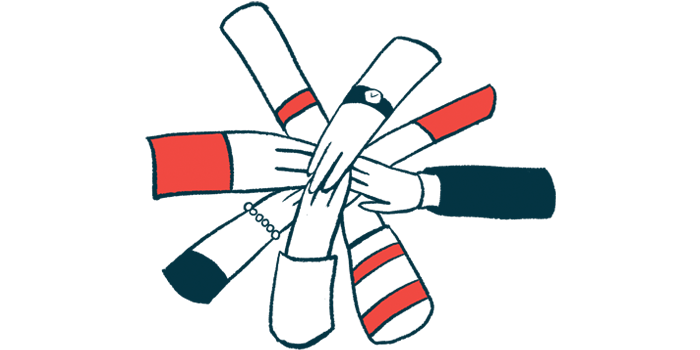ALS Nexus 2025 event aiming to make disease ‘livable’ for patients
ALS Association to host conference's second edition in Texas this summer
Written by |

The ALS Association this summer will host the second edition of its ALS Nexus, a conference bringing together researchers, healthcare professionals, advocates, patients, and caregivers in a quest to make amyotrophic lateral sclerosis (ALS) a more livable disease.
The ALS Nexus 2025 event will take place Aug. 11-14 at the Gaylord Texan Resort & Convention Center in Grapevine, Texas, near Dallas. The conference will also be held virtually. Registration for both in-person and virtual attendance is now open, with discounted rates.
According to the nonprofit, the event — designed to inspire and empower everyone working to improve the lives of ALS patients — is a unique opportunity to meet, share ideas, and shape the future of what it means to live with the neurodegenerative disease. Participants can get together with their peers, engage with organizations, and learn from experts in ALS research, healthcare, and advocacy.
“ALS Nexus is an opportunity for our entire community to come together to focus on making ALS livable and curing it,” Calaneet Balas, president and CEO of the ALS Association, said in a press release announcing the conference.
Larry Falivena, an ALS Association board member who in 2017 was diagnosed with ALS, “[encourages] anyone living with ALS to participate, in person if you are able, or by attending the sessions virtually. You will leave this conference with a renewed sense of hope.”
With limited space available, early registration is recommended. Until the end of this month, the ALS Association is offering throwback prices at a 40% discount, according to the event’s webpage.
Patients, advocates, experts all encouraged to attend ALS Nexus 2025
ALS is a progressive disease that damages nerve cells in the brain and spinal cord. It leads to difficulties moving, speaking, and breathing that worsen over the course of the disease. Diagnosing ALS typically takes about a year, and while there is no cure as yet, research continues to explore new treatment options.
In the first edition of ALS Nexus, which took place last July, participants brought together their diverse perspectives, with sessions that featured patients and caregivers, as well as clinicians and researchers specializing in ALS.
Some of the topics discussed were changes in how ALS is managed, what’s being done to delay or prevent disease onset, how new generation technologies are being used to find new treatments and cures, and what can be done to remove access to care barriers and ensure all patients receive state of the art care. The overarching goal, both last year and for this year, is on what steps can be taken to make ALS more livable for patients.
We are focused on ensuring our work delivers impacts for people living with ALS and their loved ones. This year, we are excited to continue the momentum that we all started last year — we won’t stop until ALS is livable and there is a cure.
“Attending ALS Nexus was truly an unforgettable experience,” Falivena said. “This is a space where people from every corner of the ALS community — those of us living with the disease, caregivers, researchers, and ALS physicians, can come together over a shared purpose.”
This year, ALS Nexus is back with sessions on the latest advances in research for ALS. Experts will share updates on treatments, clinical innovations, and ways to improve patient care. There will also be discussions on advocacy efforts, focusing on increasing funding, enacting laws, and improving tools to support patients and caregivers.
According to Balas, the goal of the conference is improving the quality of life of ALS patients.
“We are focused on ensuring our work delivers impacts for people living with ALS and their loved ones. This year, we are excited to continue the momentum that we all started last year — we won’t stop until ALS is livable and there is a cure,” Balas said.
Healthcare professionals attending the conference can earn Continuing Education Units (CEUs). Details about specific sessions offering CEUs will be shared soon, according to the ALS Assocation.






